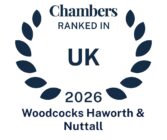Late payment of invoices is a common cause of cashflow difficulties. Sara Beaumont reveals some effective ways of getting your cash in more efficiently.
Why it pays to know your customers
The importance of knowing your customers is crucial to ensuring you get your bills paid in full and on time.
You should research new customers as much as possible before carrying out any work or supplying goods. Companies House and Experian can provide helpful reports on firms so you can assess how financially stable they are. If any red flags are raised, check them out – and ask yourself whether you are prepared to take a potential bad debt risk.
It is also essential to build a strong rapport with your customer. Get to know them on a business level and show an interest in their people – especially those who handle payments. A customer is more likely to pay you promptly, and respond positively to a polite reminder if they have a good working relationship with you.
The importance of being clear, firm and prompt over billing
Agree a quote before you start work and stick to the price agreed. This should go without saying, but some suppliers increase their bill to reflect extra work without clearing it with their customer. Nobody likes expensive surprises and a customer may challenge an unauthorised price rise which can lead to delays in payment and even loss of future business.
It’s a good idea to send your invoice as soon as the order has been fulfilled, or your work completed to the customer’s satisfaction. If you are billing for ongoing work, send your invoices at a specific time in the month, while ensuring your customer agrees and knows when to expect the invoice.
A well laid-out invoice will explain the breakdown of the amount owed by itemising the goods or services provided. Format your invoices so they are easy to read and, if possible, avoid handwritten invoices. They don’t look professional and can be difficult to read, which can lead to misunderstandings and delays.
It is also hugely important to make it clear on the invoice when payment is due. For example, you can state ‘payment terms 30 days’ or similar wording. Even better, stipulate the exact date when payment is due. This way, you can calculate when any interest you charge should run from and this should be reflected in your terms and conditions.
How being flexible can encourage customers to pay on time
Another way of encouraging prompt payment is to offer your customers different options for settling the bill. These include PayPal, electronic bank transfer, credit or debit card payments, and cheque.
Some businesses also provide an incentive to pay soon, such as ‘£20 off if you pay by 24th December’. This gives your customers a direct incentive to pay straight away and will help your cash flow.
Why it’s good to talk
It is worthwhile to follow up an invoice with a phone call to remind your customer a couple of days before payment is due. Picking up the phone is a good way of working out if there is likely to be a problem. It also gives you an opportunity to arrange a payment plan if payment in full is not possible.
Again, strong relationships are valuable – the better you know your customer, the more likely they are to pay promptly, or be open and honest with you if they are having difficulties with a payment.
It is also important to keep in mind that a good customer will not mind being asked for payment. Just the opposite: your eagerness to politely chase payment demonstrates that you are on top of your finances, which any good business person should respect.
For further advice on how to get your customers to pay more quickly, call Sara Beaumont on 0161 761 4611 or email her at sara.beaumont@whnsolicitors.co.uk














